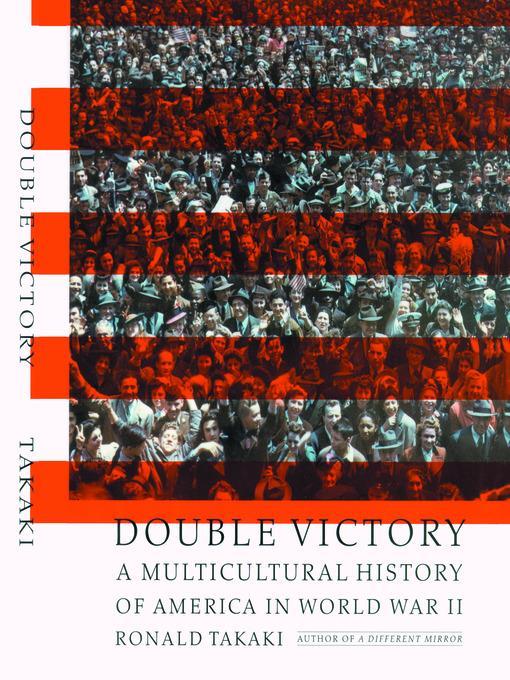
Double Victory
A Multicultural History of America in World War II
کتاب های مرتبط
- اطلاعات
- نقد و بررسی
- دیدگاه کاربران
نقد و بررسی

Special focus is given to the multiple cultures of America during WWII and their contributions to the production of the arsenal of democracy. Author Takaki makes a convincing case for the war as a giant leap forward in the civil rights of groups such as Native Americans, Japanese, Jews, Mexicans, blacks, and women. Edward Lewis's unusual style of reading spits sentences out like ultra-fast bullets, pausing longer between sentences than most other readers, and requiring extra concentration to understand. The total effect is positive, however, and history fans will find this presentation a refreshing viewpoint to the most important event of the last century. J.A.H. (c) AudioFile 2002, Portland, Maine

May 29, 2000
A significant number of Americans fought WWII on two fronts, according to Berkeley ethicist Takaki (A Larger Memory; A Different Mirror; etc.): the Axis powers were one enemy; the other was racism on the home front. This is by now a conventional argument that Takaki's anecdotal narrative does more to illustrate than to develop, though the book does demonstrate more clearly than ever the degree to which America in the 1940s was a white man's country, as opposed to a melting pot. It shows as well the wartime responses of a variety of ethnic and cultural communities--Mexicans, African-Americans, Chinese, Filipinos, Koreans, Jews and Italians. Japanese-Americans get a full chapter to themselves, concluding with an analysis of Hiroshima as a manifestation of racism. Takaki shows how the combination of military service and war work simultaneously opened horizons and raised consciousness. Black women who left white kitchens for assembly lines gained economic autonomy and faced new patterns of racial slights. Mexicans who had spent their lives in barrios found communicating in English essential for the better-paying jobs that opened more rapidly than Anglos could fill them. More significant, however, is the extent to which Takaki's anecdotal evidence challenges a fundamental element of historical multiculturalism: rather than clinging to ethnic identities in response to American involvement in the war, those recorded here asserted their American identity in order to share in the war's patriotic spirit as well as its economic spoils. (The principal exception to this drive for assimilation were the nisei, who even before Pearl Harbor sought to "embrace their twoness" with a greater vehemence than other marginalized ethnic groups.) Takaki compellingly argues that these experiences prefigured the civil rights revolution. This book thus depicts, forcefully and clearly, the first steps toward an America that could be color-neutral.

April 15, 2002
World War II signifies more than an international struggle. In Double Victory, professor Takaki (UC-Berkeley) uses a spectrum of American voices to illustrate the struggles on the home front: the minority efforts to win recognition in the U.S. military, the minority men and women who left farm and domestic jobs and joined the larger economy, the histories of Asian Americans during the war, and the fight by American Jews to get President Roosevelt to intervene for European Jews. The author's lucid prose enlists narrator Edward Lewis's enthusiasm, and the work shows that the genesis of America's power in the world and the advancement of multiculturalism at home occurred in tandem. Highly recommended. James L. Dudley, Westhampton Beach, NY
Copyright 2002 Library Journal, LLC Used with permission.

























دیدگاه کاربران